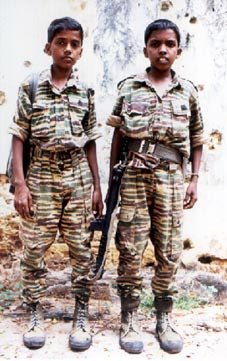One of the most sobering elements of living in India is seeing the drastic difference in living standards between people. I’ve offered some statistics in past entries to give you an idea of per-capita income vs. that in the USA and India’s Human Development Index rating, but now I would rather give you a few day-to-day examples of how I see the poverty play out in my daily life.
It is very common for poor families or individuals to wait at busy intersections and:
* Provide some form of entertainment (i.e. do somersaults with a partner, play an instrument while a child dances, etc.) and then ask for money
* Sell magazines, books, balloons, newspapers
* Simply motion with their cupped hand from their stomach to their mouth and ask for money


(Jose Luis and I at a wedding engagement last Sunday. These are the fortunate kids.)
Often times it is children who do the asking, as their parents sit in the median or the side of the road. As you can probably imagine, these children are far more effective in asking for money than their parents. All of these individuals are clearly very poor. Their skin and hair are very dirty. Their clothes are often rags and at times they are barefoot. They come right up to you, tap on your window, look you in the eye, sometimes tugging on your pant leg and ask for some help. Everyone approaches these requests differently. Some people role up their windows. Others look the other way. Some say ¨Sorry, I can’t help you.¨ A few give them some Rps.
It’s difficult to know when to help them out and when not to. Speaking for myself, I simply can’t help them every time they ask. Further, it is clearly a very short-term solution to a very complex problem and it is not always used by the families for the purposes one would hope. However, there´s no doubt these five or 10 rupees I can give them is more than they had a few moments before.
Three personal experiences to share -
#1: My second week in Gurgaon I was at a busy intersection in the back of a taxi when I suddenly had four, five, maybe six people, kids and adults, pleading directly outside my window for money. I felt incredibly sorry for these people. As I rolled down the window just a little bit to give one of them a 10 Rp. note hands from all of them shot through the open window. I suddenly had all of these hands grabbing wildly inside the car at this note in my hand. One of them took it and I was left with the looks on the faces of all those who came up empty handed.
(Four brothers - The oldest in the upper right is who invited us to the engagement.)
#2: A few weeks back, I was waiting outside the grocery store with my friend Leonor, waiting for my roommate Ashok was inside. A girl who couldn’t have been more than 7 or 8 years old approached us both asking for money. Leonor promptly went inside and bought a baguette for her. The young girl quickly took it over to her Mom who was nearby. Ashok came out from the store and we started to walk off when the Mom and kids approached us again. The Mom said that her kids prefer chocolate.
#3: Finally, a couple weeks ago, it was about 10 p.m. and I was trying to hail an auto rickshaw on a busy intersection near an underpass. I realized quickly that while this was probably the best place to find an auto rickshaw, it was also an area dense with cars waiting at stop lights, and a prime spot to be approached by poor individuals. I suddenly had five kids all around me asking for money. All kids with no parents whom I could see close by. They were tugging on my pant legs and touching my shoes. They surrounded me. There wasn’t one above 12 years old. I was just astonished at the unfairness in the world. Why were they given this life? Why was I blessed with my life? I played t-ball when I was there age and went to school every day. They’re being forced to beg on a street corner.
These are just a few examples of how this plays out on a daily basis. There are so many issues to consider in this conversation on poverty and I will try to offer my perspective on some of them in the months to come.


 - Human Sex Trafficking -
- Human Sex Trafficking -
 - ¨Honor¨ Killings -
- ¨Honor¨ Killings -








 (Carla de Madrid, Spain, Pablo de Valencia, Spain y Josh de Everett, USA)
(Carla de Madrid, Spain, Pablo de Valencia, Spain y Josh de Everett, USA)


